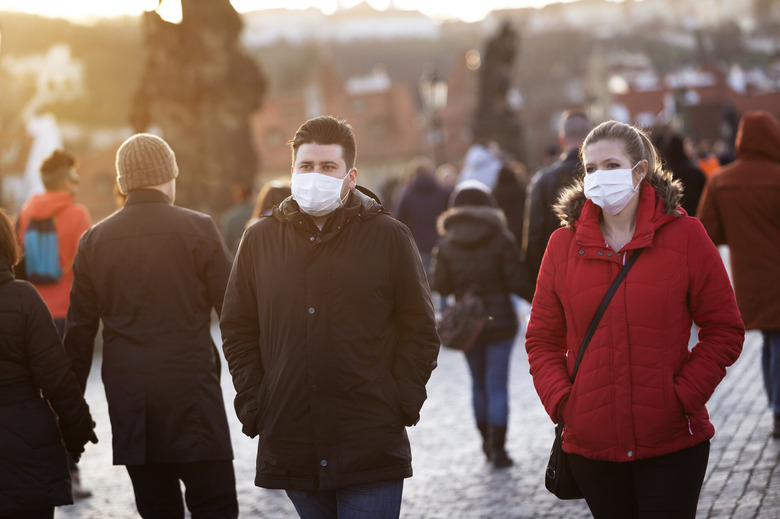Doing These 3 Things Might Prevent Nearly All Coronavirus Cases, Study Says
- A study found that mask-wearing and social distancing are 87% effective at preventing coronavirus infections on college campuses.
- This figure rises to 92% when combined with regular COVID testing.
- In recent weeks, new coronavirus mutations have been found in the UK, South Africa, and Japan.
One of the more frustrating things about the coronavirus pandemic — which is getting worse with each passing week — is that we could have completely prevented an untold number of deaths if people simply followed basic safety guidelines from the very beginning. But for reasons that still don't make much sense, even something as basic and easy as wearing a mask became a divisive political issue. Compounding matters is that many conspiracy theories surrounding the pandemic gained a surprising amount of traction throughout 2020.
As it stands now, the U.S. alone has seen more than 23.1 million coronavirus cases and 384,000 coronavirus-related deaths. And while both of those figures will continue to rise over the next few months, there's finally a reason to be hopeful thanks to coronavirus vaccines from Pfizer and Moderna. Notably, the vaccines cause no serious side effects and both were found to be 95% effective at preventing a COVID infection during clinical trials.
As promising as the vaccines are, the reality is that it's going to take a few months before the U.S. can achieve herd immunity. In the interim, a new study that was recently published in the Annals of Internal Medicine relays that following three guidelines can be just as effective at preventing COVID-19 outbreaks as the aforementioned vaccines. The guidelines aren't necessarily surprising, but given how rapidly the coronavirus is still spreading across the country, it's certainly worth sharing.
According to the study, 87% of coronavirus infections on college campuses — which have been a hotbed for outbreaks — can be prevented if everyone wears masks and adheres to social distancing. Notably, this figure rises to 92 to 96% if the measures above are combined with regular coronavirus testing. This certainly makes sense given that many coronavirus infections are caused by asymptomatic carriers who unknowingly spread it to others.
The study above is especially instructive given that many students just recently returned or will soon return to campus soon for the winter semester.
One challenge, however, is that regular COVID testing on a student body that includes thousands of students can put a financial strain on institutions. Pooyan Kazemian, one of the study's co-authors, adds:
While some measures are highly effective, implementing them is entirely up to each college's financial situation, which may have already become strained because of the pandemic.
It is clear that two common non-medical strategies are very effective and inexpensive—and allow for some in-person instruction. While it's true routine testing of the asymptomatic helps catch some infections early and reduce transmissions, they also pose the highest financial and operational burden, even if performed every 14 days.
The study further found that 75% of college students would likely contract the coronavirus in a scenario where nobody wore masks or adhered to social distancing guidelines.
Put simply, there's simply no excuse at this point for colleges not to implement strict COVID safety guidelines for students and teachers to follow.
